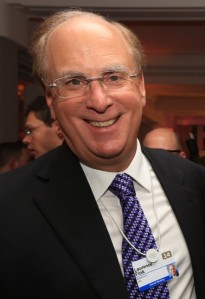“Come now, let us set things right, says the Lord.” (Isaiah 1:18)
Upon hearing those words from Isaiah, my heart was drawn to the recent events in Parkland, Florida. How can we, how can I “set things right?” We cannot bring back those 17 who died at Marjory Stoneman Douglas High School. Nor can we bring back the two killed at Kentucky’s Marshall County High School (Jan 2018), nor the three at New Mexico’s Aztec High School (Dec 2017), nor the six at California’s Rancho Tehama Elementary School (Nov 2017), nor any of those many tragedies among school shootings in the U.S.
The youth from Marjory Stoneman Douglas High School have undertaken a herculean task: getting Congressional action on guns. At this point, Congress remains crippled. If Congress passes comprehensive background checks for gun sales, raises the minimum legal age for gun purchases, and restricts the sale of certain firearms, the inspired leadership from students Emma González and David Hogg will have accomplished a miracle of biblical proportions.
Do Not Stand Idly By details actions that local and state public officials can take, including identifying “bad-apple” gun dealers and changing firearm procurement policies for local law enforcement. They also have some modest and meaningful proposals for firearms manufacturers, including building a network of reputable dealers and deploying smart technologies in firearm safety. In spite of the availability of new technologies, gun makers have not chosen to deploy them. A simple way to see it is to compare a common firearm and a cell phone. The average cell phone has greater and more extensive security than any firearm on the market in the U.S., but the firearm is much more lethal than the cell phone.
For our part as shareholders, how can we “set things right?” Some (under the hashtag of #BoycottNRA) have pressured companies to break agreements and preferences extended to the National Rifle Association (NRA). A host of firms have ended partnerships with the NRA. Axios.com has provided a running list of companies that have ended their agreements with the NRA here. Blackstone, a large private equity asset management group, called its outside fund managers to make a report over the weekend about investments in firearms. FedEx seems to gone further than most other companies who merely ended partnership agreements. FedEx offered a statement that expressed specific values about assault weapons.
Barron’s Reshma Kapadia outlined a strategy in a recent article: “We’re All Gun Owners, and Here’s Why.” Kapadia explains that even Florida teachers, via their retirement funds, hold shares in the companies that make the AR-15 rifle. Vanguard and BlackRock hold major stakes in the three manufacturers of firearms. The gun makers are small relative the size of the two large funds, the value of a “rounding error” according to Kapadia, but she notes: “The gun makers may not matter to asset managers, but the reverse isn’t true. The fund giants help keep the stocks of gun makers afloat.” At least 16 banks, including Bank of America, Capital One, JPMogran Chase, U.S. Bank, and Wells Fargo, also are significant shareholders in firearms manufacturers.
Reuters reports that BlackRock has not remained idle: “BlackRock puts gunmakers on notice after Florida school shooting.” The article duly notes that BlackRock has not defined what actions it will take. For my part, I’d recommend that BlackRock join with Sr. Judy Byron, O.P. who filed resolutions with American Outdoor Brands (Smith & Wesson) and Sturm Ruger. The resolutions ask the companies to report on their activities related to gun safety measures and the mitigation of harm associated with gun products, including efforts to research and produce safer guns and gun products, and to assess the reputational and financial risks they face from gun violence in the U.S.
Let us commit ourselves to “set things right.” Even the words from Isaiah that precede it deeply resonate with our work in corporate social responsibility: “Make justice your aim: redress the wronged, hear the orphan’s plea, defend the widow” (Isaiah 1:17). Let us not be deaf to the cries of school children. Let us not fail to act.
ICCR has a press release about the resolutions here.





